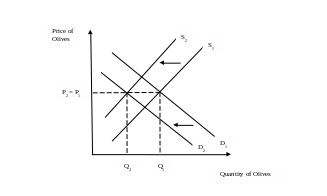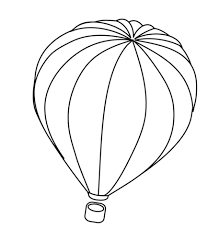RECLAIMED WATER TECHNICAL COMMITTEE DRAFT MEETING 7 SUMMARY PAGE
RECLAIMED WATER TECHNICAL COMMITTEE DRAFT MEETING 7 SUMMARY PAGE
Reclaimed Water Technical Committee
Reclaimed Water Technical Committee
DRAFT Meeting 7 Summary
Page
Reclaimed Water Technical Committee
Meeting 7 Summary
September 15, 2006
Committee members:
Walt Canter, Cedar River
Geoff Clayton, Woodinville
Paul Fabiniak, Ecology
Bruce Flory, Seattle
Jane Lamensdorf-Bucher, King County
Peggy Leonard, King County (Lead)
Terry Martin, Seattle
Judy Nelson, Covington
Don Perry, Lakehaven
Greg Reed, Kent
Scott Thomasson, Redmond
Lisa Tobin, Sammamish Plateau
Don Wright, SKC Regional Water Association
Facilitator:
Mike Sharar
Guest presentation:
Don Theiler, Director, King County Wastewater Treatment Division
King County staff:
Steve Gilbert
Laurie McCray
Erika Peterson
Elizabeth Elliott
1. Agenda & Meeting Summary Review
Mike Sharar called the meeting to order and asked for comments pertaining to summaries for meetings 5 and 6.
Decision: Summaries for Meetings 5 and 6 accepted with no changes.
2. Framework Analysis Review
a. Will the WRF tool meet the needs of agencies in the King County region?
Mike asked if the “Raucher tool” included components to satisfy the committee that they have found an appropriate tool. Members discussed the importance of doing a perspectives analysis. Bruce Flory mentioned that this is sometimes done at the end of a benefit-cost analysis, as a step in completing the full analytical framework. Peggy Leonard mentioned that the Raucher Scope of Work calls for a perspectives analysis.
Several members agreed that Raucher is the best person for the job and as an “outsider” will be perceived as objective.
b. Can we pick a test case to run through the model?
Members clarified that the purpose of the exercise is to learn more about using the model in the future and not to determine whether a specific project is viable – or whether King County should have a reclaimed water program. Some members suggested using the Backbone as a test case for the Raucher model and others offered the option of using a hypothetical case. Judy Nelson offered the Covington reclaimed water project as a test case so long as she had help from the committee in pulling together the necessary information.
c. What kind of data do we need to run a test case?
Some members discussed the need to consider data about the “water rich” environment found in King County.
Decision: Evaluate the Economic Framework Analysis (as it is titled by the WateReuse Foundation) further by doing a test case from the King County area. Give Dr. Raucher all the necessary information pertinent to the King County region.
d. Who do we need at the table to do a test case?
Decision: The Covington conceptual reclaimed water project can serve as a test case so Dr. Raucher can train the committee to use the framework tool.
Decision: At the October 6th committee meeting, Judy Nelson will give a presentation about the conceptual Covington project as a first step to gathering data for Dr. Raucher to show the committee how to apply the Framework.
4. Next Steps: October 6th committee meeting and October 27th Raucher work session
The group discussed the fact that the Regional Water Quality Committee recently directed King County to conduct a reclaimed water feasibility study by December 2007. Members discussed how they might be involved in that effort, as a group or individually. Some members suggested that the Reclaimed Water Technical Committee might have a role in that effort. Others suggested that feasibility studies were outside the purview of this committee and that it’s up to each agency or jurisdiction to conduct studies, if they choose. Mike Sharar pointed out that conducting a feasibility study was not included in his facilitation scope; that in developing its charter, the committee decided to focus on identifying an appropriate tool through which jurisdictions in King County might choose to evaluate specific reclaimed water projects.
Peggy Leonard said that county staff is currently working on a scope of work for the feasibility study that will include opportunities for meaningful input and discussion from committee members’ jurisdictions, RWQC members, tribal entities and environmental groups, and other appropriate stakeholders.
5. Brightwater Backbone update – Don Theiler, Director, Wastewater Treatment Division
(A copy of Don Theiler’s power point presentation is attached; following are highlights of Don’s presentation, along with comments from committee members.)
Don pointed out that it will never be easier to treat wastewater than it is today at this moment. New issues arise regularly, such as emerging information on chemicals of concern. The state has told the county to reduce discharging into Puget Sound. Illegal water rights users will eventually get pressured to stop those practices. Reclaimed water provides an alternative source of water with the added bonus of decreasing discharge into Puget Sound.
King County’s Wastewater Treatment Division’s vision for its future is “Creating Resources from Wastewater.” This vision is present in recycling biosolids, generating and using energy (gas) from digesters, and reclaiming water. It will be a long time before these programs realize large revenues, but it’s the right thing to do.
It’s important to note that the decision to use MBR at Brightwater was made for wastewater treatment purposes, and not for reclaimed water. However, MBR technology creates Class A reclaimed water; it just doesn’t make sense to discharge that into Puget Sound.
The fact that the Washington State DNR wouldn’t approve Brightwater’s discharge as a “water dependent” use provided yet another reason to move forward in the direction of building a reclaimed water conveyance.
Don said that the Wastewater Treatment Division began planning for the Backbone only after learning from the state that we could not reuse MBR effluent from the Brightwater conveyance system without additional treatment because of blending events. To take advantage of the Class A reclaimed water from Brightwater we would need a dedicated pipe.
Don distinguished between the south and west legs of the Backbone. For the West leg, the King County Council decision to fund Backbone Phase 1 takes advantage of the Brightwater construction project to build purple pipe inside the influent/effluent tunnel. Additional infrastructure to reach customers from the West leg has not been approved.
The South leg provides more reclaimed water to the Sammamish Valley for less money than previous proposals, and King County is working with water utilities and future customers in that area now.
The county believes user fees could pay for the Brightwater Backbone. In the event that user fees would not cover the costs, ratepayers could pay up to10 cents per month.
Don stated that the county would complete the RWQC’s request for a Feasibility Study by December 2007 before moving forward with future phases.
Don said King County prefers to wholesale reclaimed water, not retail, and we are meeting with water utilities.
Don said that while there had been mistrust, wrong information and rumors concerning the Backbone, he feels everyone wants the same thing: a clean, reliable water supply that exceeds standards while protecting and preserving people, wildlife, and natural resources such as local streams and the Puget Sound. He said we shouldn’t feel threatened when discussions turn “lively” because the important thing is having a venue to discuss issues. He knows we can get a lot done between now and the next four years when the Backbone goes online.
The group discussed considering reclaimed water for aquifer recharge for future discussion, while acknowledging that there are additional complexities and emerging questions that are not present when reclaimed water is used at agronomic rates.
Tags: committee draft, from committee, reclaimed, meeting, draft, water, technical, committee, summary
- 2 DPTO ASESORIA JURÍDICA OF REFERENCIAS JURÍDICAS REPUBLICA DE
- SOLICITUD DE MODIFICACIÓN DE DATOS BANCARIOS (PERSONAL NO
- ELEMENTI DI STORIA DELL’INFORMATICA MILANO 0TTOBRE 2005 STORIA DELL’INFORMATICA
- INFORMACIÓN SOBRE EMPLEO EN INTERNET OFERTAS DE EMPLEO ECYL
- SELFEVALUATION LEONARDO DA VINCI PROJECT (20012005) EIN MODUL
- PREDLOG ZAKONA O POTVRĐIVANJU SPORAZUMA O RAZVOJNOJ SARADNJI IZMEĐU
- NETWORK THE INTERNATIONAL OF GROUPS PRO INFANTILE FEEDING IBFAN
- AANVRAAGFORMULIER VOOR EEN VERGUNNING INGEVOLGE DE WET VERONTREINIGING OPPERVLAKTEWATEREN
- Fragmentation of Small Carbon Clusters a Review k Béroff1
- SE BUSCAN NUEVAS VOCES PARA COMUNICAR LA CIENCIA
- UMOWA NR ……………OKREŚLAJĄCA ZASADY REALIZACJI BADAŃ I WYPŁACANIA STYPENDIUM
- KÖZTERÜLETHASZNÁLAT ÜGYMENET LEÍRÁSA KECSKEMÉT MEGYEI JOGÚ VÁROS ÖNKORMÁNYZATA KÖZGYŰLÉSÉNEK
- DIARI OFICIAL DE LA GENERALITAT DE CATALUNYA
- ACUERDO 042013 MEDIANTE EL CUAL SE CREA EL PROTOCOLO
- CHEM 1A TEST 4 OCT 14 2005 RYDBERG CONSTANT
- KENDRIYA VIDYALAYA SANGATHAN MR PUNE CLUSTER II 1ST
- ESCRITO DEL DIPUTADOA DE PERSONAL A CADA JEFEA DE
- TIPOS DE TEXTO LAS TIPOLOGÍAS TEXTUALES SON MÉTODOS
- JÕGEVAMAA 2020 A KABE MEISTRIVÕISTLUSTE ÜLDJUHEND 1 EESMÄRK VÕISTLUSTE
- REGLAS DE COMPETICIÓN DEL TROFEO RECTOR DE FÚTBOL SALA
- EVANJELICKÉ GYMNÁZIUM BANSKÁ BYSTRICA PRIPRAVIL MGR MAREK HANUSKA PREDMET
- 07%2081%2023%20%20UCSF%20MC%20Master%20120828
- READING ROMAN NUMERALS 1 I 11 XI 30 XXX
- PUBLIC FTAAECOMINF04COR1 9 JANUARY 1999 FTAA JOINT GOVERNMENTPRIVATE SECTOR
- PROGRAMUL OPERAŢIONAL CAPITAL UMAN AXA PRIORITARĂ 3 LOCURI DE
- TRYB PRZEPROWADZANIA CZYNNOŚCI W POSTĘPOWANIU O NADANIE TYTUŁU PROFESORA
- EXPLANATION OF HIGH RISK FACTORS IN FAMILY AND DOMESTIC
- ALCUNE ESPERIENZE DI MOBBING1 LE VESSAZIONI IMPOSTE DA CAPI
- HOUSING STRATEGY FOR PEOPLE WITH DISABILITIES 2013 – 2015
- NORTHWEST OHIO’S GREENHOUSE CLUSTER FROM CONCEPT TO IMPLEMENTATION NEIL
 COMPTESRENDUS RENCONTRES PO CENTRES DE VACANCES ASR BRABANT WALLON
COMPTESRENDUS RENCONTRES PO CENTRES DE VACANCES ASR BRABANT WALLONADRESA PŘÍSLUŠNÉHO ÚŘADU ÚŘAD MMZOPPSÚP ULICE NÁMĚSTÍ MÍRU
 CURRICULUM VITAE SOSTITUIRE CON NOME (I) COGNOME (I) INFORMAZIONI
CURRICULUM VITAE SOSTITUIRE CON NOME (I) COGNOME (I) INFORMAZIONI CUENTOS CORTOS HABÍA UNA VEZ UN ELEFANTE QUE FUE
CUENTOS CORTOS HABÍA UNA VEZ UN ELEFANTE QUE FUE K PLASTİK FUARI 2019 1 623 EKIM 2019 DUSSELDORF
K PLASTİK FUARI 2019 1 623 EKIM 2019 DUSSELDORFREQUISITOS PARA VISAS DE DEPORTISTA ES NECESARIO PRESENTAR 1
 CHAPTER 03 – DEMAND SUPPLY AND MARKET EQUILIBRIUM (APPENDIX)
CHAPTER 03 – DEMAND SUPPLY AND MARKET EQUILIBRIUM (APPENDIX) ANMELDUNG ALLE ANGABEN SIND STRENG VERTRAULICH UND UNTERLIEGEN DER
ANMELDUNG ALLE ANGABEN SIND STRENG VERTRAULICH UND UNTERLIEGEN DER ZADANIA DO WYKONANIA W DOMU – 1703 – 20032020
ZADANIA DO WYKONANIA W DOMU – 1703 – 20032020INDUCCION Y ONDAS E M (FISICA 4) REGLAS DE
NÁPOVĚDY KE KOLONKÁM PŘIHLÁŠKY INSTRUCTIONS FOR FILLING IN APPLICATION
VIPER TRACK AND FIELD TEAM CONTRACT 1 ALL ATHLETES
CASOS CASO CLÍNICO EN RELACIÓN AL TEJIDO ÓSEO MATERIA
 C OLEGIO VILLA SANTA MARIA GRAN AVENIDA 10291
C OLEGIO VILLA SANTA MARIA GRAN AVENIDA 10291 LANDESJAGD UND NATURSCHUTZVERBAND FREIE UND HANSESTADT HAMBURG E V
LANDESJAGD UND NATURSCHUTZVERBAND FREIE UND HANSESTADT HAMBURG E VRASPORED PREDAVANJA I SEMESTRA SVIH STRUČNIH STUDIJA VELIKA
 G ENERALITAT DE CATALUNYA DEPARTAMENT D’EDUCACIÓ INSTITUT CARLES VALLBONA
G ENERALITAT DE CATALUNYA DEPARTAMENT D’EDUCACIÓ INSTITUT CARLES VALLBONA LINE 2 ASSOCIATION OF UNIFIED TELECOM SERVICE PROVIDERS OF
LINE 2 ASSOCIATION OF UNIFIED TELECOM SERVICE PROVIDERS OFCABLE A TIERRA WORKSHOPS AMONG PEERS A NEW AND
 SPIRIT KREŠIMIROVA 28B RIJEKA WWWSPIRITRIHR UPRAVNI ODBOR SUZANA JAŠIĆ
SPIRIT KREŠIMIROVA 28B RIJEKA WWWSPIRITRIHR UPRAVNI ODBOR SUZANA JAŠIĆ